Introduction: The Rising Interest in Brain Enhancement and Neuro Enhancing Therapies
In today’s fast-paced and intellectually demanding world, the pursuit of cognitive excellence has never been more intense. As people seek ways to optimize their mental performance, the concept of brain enhancement through pharmacological means has gained significant traction. With technological advances and deeper understanding of neuroscience, individuals are now exploring a variety of options to achieve neurological enhancement, ranging from lifestyle modifications to sophisticated neuro enhancing therapies. One of the most intriguing developments in this field is the growing popularity of nootropics, substances purported to boost brain function in healthy individuals. As these trends continue to evolve, important questions arise about their legality, efficacy, and application, particularly for medical conditions such as attention deficit hyperactivity disorder (ADHD) and narcolepsy. This article delves into the multifaceted landscape of brain enhancement, examining both the scientific and ethical dimensions, and evaluates whether nootropics offer real promise or remain within the realm of hopeful speculation.
You may also like: How to Choose the Best Brain Supplements for Adults: Science-Backed Ingredients That Support Focus, Memory, and Mental Clarity
Understanding Neurological Enhancement: Definition and Scope
Neurological enhancement refers to interventions that improve the cognitive, emotional, or behavioral functions of the brain beyond the normal healthy baseline. Unlike traditional therapies aimed at treating diseases, these interventions are designed to optimize existing capacities, making individuals sharper, more focused, and mentally resilient. The notion of brain enhancement has transcended basic wellness routines and now encompasses a wide array of strategies, including brain enhancement pharmacological enhancements, neurostimulation technologies, cognitive behavioral therapies, and lifestyle interventions such as mindfulness and meditation.
At its core, neurological enhancement seeks to bridge the gap between natural ability and peak human potential. For instance, in academic environments, students are increasingly exploring methods to enhance memory retention, speed of information processing, and creative thinking. Similarly, professionals in high-stakes industries view cognitive optimization as a critical tool for maintaining a competitive edge. This ever-expanding definition of neurological enhancement underscores the evolving understanding that cognitive function is not static, but can be actively cultivated and refined.
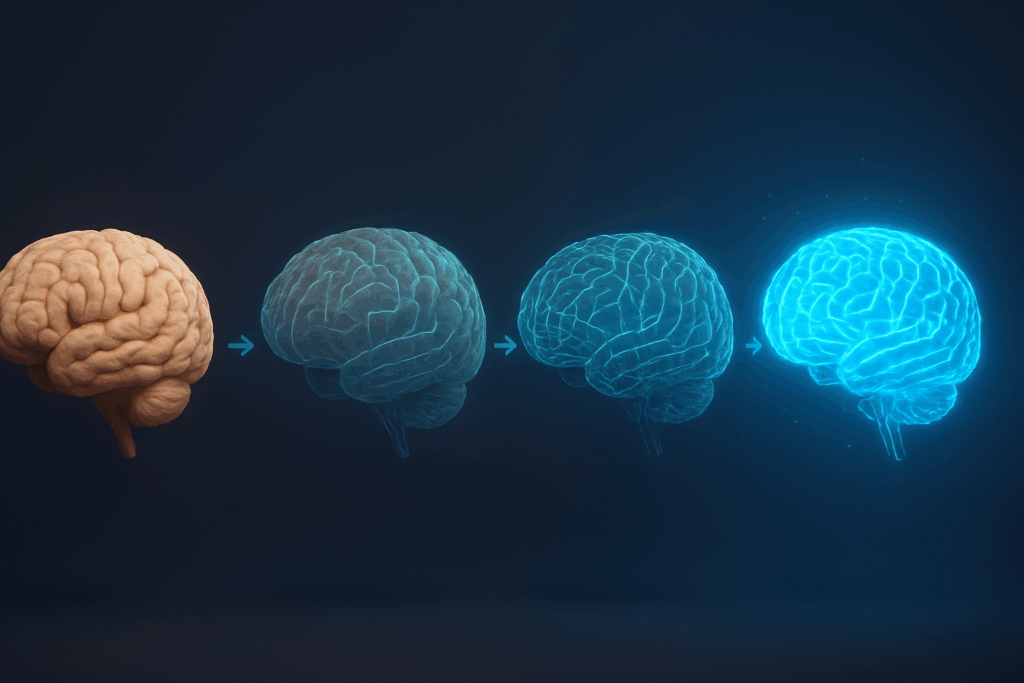
The Science Behind Brain Enhancement Pharmacological Enhancements
Brain enhancement pharmacological enhancements specifically involve the use of drugs and supplements to elevate cognitive function. These substances are often classified under the umbrella term “nootropics,” which was first coined in the 1970s by Romanian psychologist and chemist Dr. Corneliu E. Giurgea. According to Giurgea, true nootropics should enhance learning and memory, protect the brain against physical or chemical injury, and improve the efficacy of cortical and subcortical control mechanisms.
Substances such as modafinil, methylphenidate, and amphetamines have demonstrated notable efficacy in improving attention, memory, and executive function, particularly in individuals diagnosed with ADHD or narcolepsy. However, the off-label use of these medications for general cognitive enhancement among healthy individuals raises complex ethical, medical, and legal questions. Research into brain enhancement pharmacological enhancements continues to uncover new mechanisms through which these drugs operate, offering insights into neurotransmitter systems, neuroplasticity, and synaptic efficiency. The nuanced interaction between chemical compounds and neural networks reveals the potential for profound cognitive benefits, but also highlights the necessity for caution regarding long-term effects and dependency risks.
Neuro Enhancing Therapies: Beyond Pharmacology
While pharmacological interventions dominate public discourse on cognitive enhancement, neuro enhancing therapies extend far beyond the pill bottle. Techniques such as transcranial direct current stimulation (tDCS) and transcranial magnetic stimulation (TMS) offer non-invasive ways to modulate brain activity and improve cognitive outcomes. tDCS, for example, delivers a low electrical current to specific brain areas, potentially enhancing learning and problem-solving abilities.
Moreover, cognitive training programs leveraging neuroplasticity principles have shown promise in enhancing working memory, attentional control, and cognitive flexibility. These approaches emphasize that brain enhancement does not solely hinge on pharmacological solutions but can also be achieved through structured mental exercises and environmental enrichment. This broader view of neuro enhancing strategies reinforces the idea that the brain is a dynamic, malleable organ capable of continual growth and adaptation, a principle that forms the foundation of modern neuroscience.
Are Nootropics Legal? Navigating the Regulatory Landscape
One of the most pressing concerns surrounding nootropics is their legal status, which varies significantly across jurisdictions. In the United States, the Food and Drug Administration (FDA) has not approved most nootropics for general cognitive enhancement purposes. Instead, many substances marketed as nootropics are sold as dietary supplements, a category subject to far less stringent regulation compared to pharmaceutical drugs. This legal ambiguity places a considerable burden on consumers to discern product quality, efficacy, and safety.
Prescription medications like modafinil and methylphenidate are classified as controlled substances due to their potential for abuse and dependence. Obtaining these drugs without a valid prescription is illegal and can carry significant legal penalties. Nevertheless, the black market and online pharmacies continue to supply these medications to individuals seeking an unregulated path to brain enhancement.
Internationally, the legal status of nootropics varies even more widely. For example, many European countries classify modafinil as a prescription-only drug, while others have banned certain substances altogether. This patchwork of regulations reflects differing societal attitudes toward brain enhancement and highlights the challenges of creating a coherent global framework for the responsible use of cognitive enhancers.
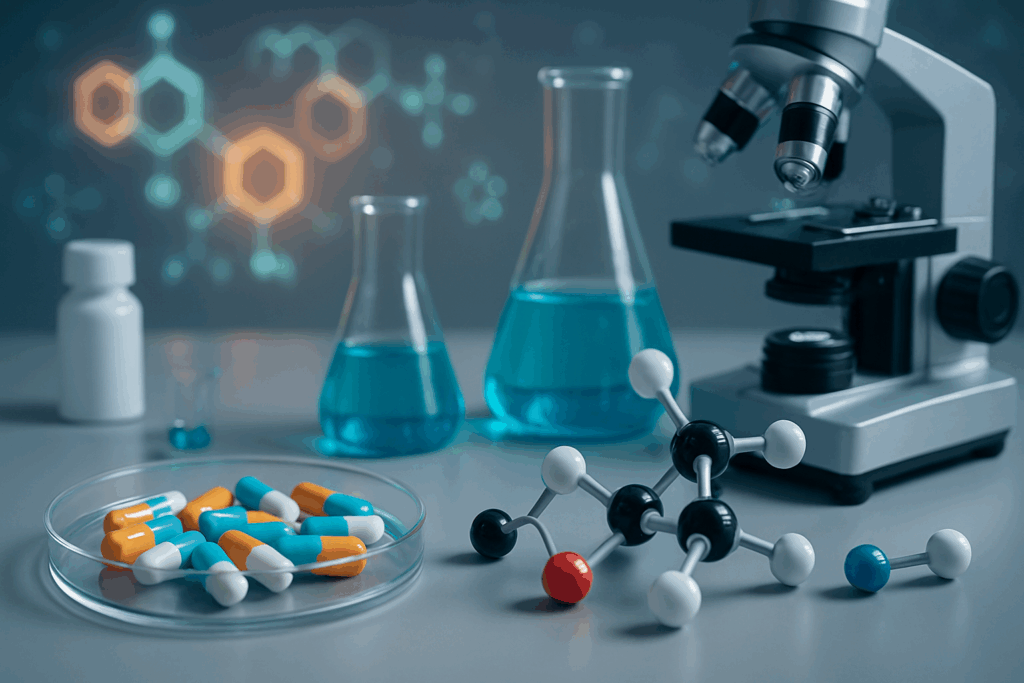
Can Nootropics Help Attention Deficit Hyperactivity Disorder?
Attention deficit hyperactivity disorder is a neurodevelopmental condition characterized by inattention, impulsivity, and hyperactivity. Traditional pharmacological treatments, such as stimulants like methylphenidate and amphetamines, are well-documented for their efficacy in managing ADHD symptoms. These medications enhance dopaminergic and noradrenergic transmission, thereby improving attention span, impulse control, and executive functioning.
Some nootropics have shown promise as adjunct therapies or alternatives for individuals who either do not respond well to conventional medications or experience intolerable side effects. For example, modafinil, although primarily approved for sleep disorders, has demonstrated efficacy in reducing ADHD symptoms in some clinical trials. However, it is essential to recognize that while nootropics may offer symptomatic relief, they do not constitute a cure for ADHD. Comprehensive management typically involves behavioral interventions, psychoeducation, and lifestyle modifications in addition to medication.
Moreover, the off-label use of nootropics for ADHD remains a controversial topic within the medical community. Concerns regarding long-term safety, appropriate dosing, and potential for misuse necessitate cautious consideration. As research into the mechanisms underlying ADHD continues to advance, future brain enhancement pharmacological enhancements may offer more targeted and individualized treatment options, bridging the gap between symptomatic relief and true cognitive optimization.
Nootropics and Narcolepsy: A Promising Avenue?
Narcolepsy is a chronic neurological disorder characterized by excessive daytime sleepiness, cataplexy, sleep paralysis, and hallucinations. The condition stems from the brain’s inability to regulate sleep-wake cycles properly, often due to the loss of hypocretin-producing neurons. Pharmacological treatments traditionally focus on promoting wakefulness and managing associated symptoms.
Modafinil and its successor, armodafinil, have become first-line treatments for narcolepsy, significantly improving wakefulness and overall quality of life for affected individuals. These medications enhance dopaminergic signaling without the same level of euphoric effects associated with traditional stimulants, reducing the risk of abuse. Other neuro enhancing compounds under investigation include pitolisant, a histamine H3 receptor inverse agonist, which offers a novel mechanism of action for promoting wakefulness.
While nootropics provide symptomatic relief, they do not address the underlying pathophysiology of narcolepsy. Nevertheless, the ability of these agents to improve daytime functioning and cognitive performance represents a significant advancement in managing the disorder. Ongoing research into brain enhancement pharmacological enhancements may yield even more effective and personalized treatment strategies in the future, offering renewed hope to individuals grappling with the profound challenges of narcolepsy.
Ethical and Social Implications of Cognitive Enhancement
The pursuit of brain enhancement raises a host of ethical and social questions that society must grapple with. Is it fair to use pharmacological interventions to gain an academic or professional advantage? Should employers or educational institutions have policies governing the use of neuro enhancing therapies? These questions touch on issues of equity, consent, and societal values.
Critics argue that widespread cognitive enhancement could exacerbate existing social inequalities, privileging those who can afford access to the latest brain enhancement technologies and pharmacological enhancements. Others express concern about the potential for coercion, where individuals may feel compelled to use nootropics to keep pace with peers in competitive environments. Additionally, questions regarding authenticity and the nature of achievement arise: does success achieved through chemical enhancement diminish personal merit?
Addressing these concerns requires a balanced approach that acknowledges the legitimate potential of neurological enhancement while safeguarding against its misuse. Transparent research, informed consent, and equitable access must form the foundation of any ethical framework guiding the responsible use of cognitive enhancers.
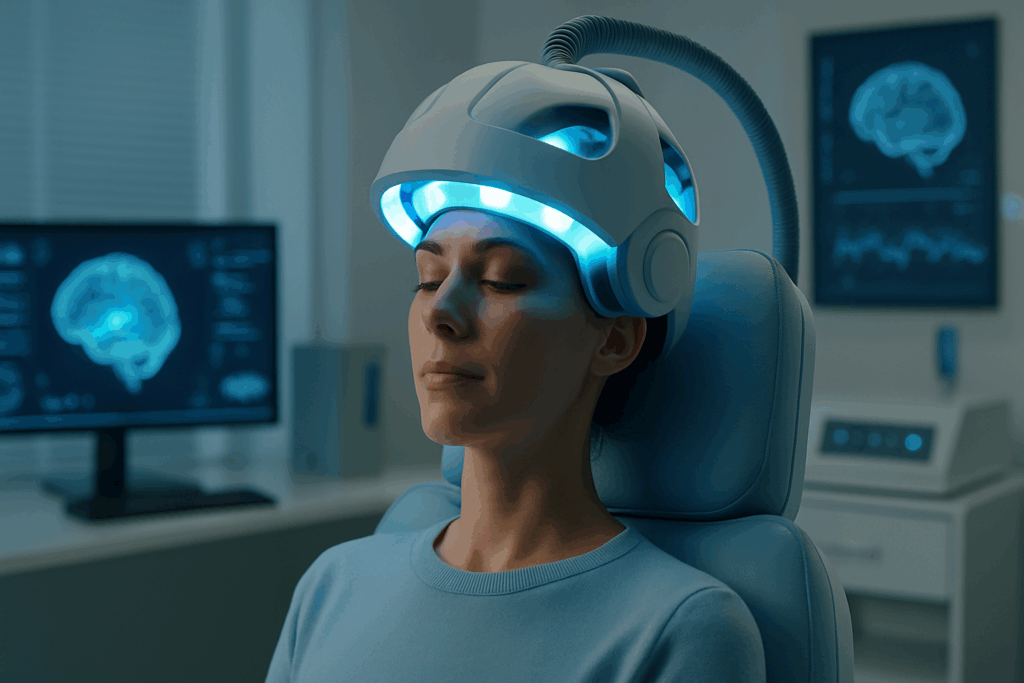
The Future of Brain Enhancement and Neuro Enhancing Therapies
The future of brain enhancement holds immense promise as science continues to unravel the complexities of the human brain. Emerging fields such as optogenetics, neural prosthetics, and brain-computer interfaces offer tantalizing glimpses into new frontiers of neurological enhancement. These technologies, though currently in nascent stages, could revolutionize the treatment of cognitive disorders and redefine the very nature of human potential.
Pharmacological research is also evolving, with the development of compounds that target specific neurotransmitter systems, enhance synaptic plasticity, and promote neurogenesis. Personalized medicine approaches, leveraging genetic and biomarker data, may enable the tailoring of neuro enhancing therapies to individual cognitive profiles, maximizing efficacy while minimizing adverse effects.
Importantly, the democratization of brain enhancement must remain a central focus. Ensuring that advancements in neurological enhancement do not become the exclusive province of the wealthy elite will be essential to fostering a more equitable and inclusive future. Public dialogue, ethical oversight, and interdisciplinary collaboration among scientists, ethicists, policymakers, and the public will be vital in shaping a future where brain enhancement serves the collective good rather than exacerbating social divisions.
Frequently Asked Questions: Brain Enhancement and Cognitive Optimization
1. How do lifestyle factors impact the effectiveness of brain enhancement strategies?
While supplements and pharmacological enhancements play a key role in cognitive support, lifestyle choices profoundly influence their effectiveness. Poor sleep, chronic stress, and sedentary behavior can counteract even the most advanced neuro enhancing strategies. For instance, inadequate REM sleep impairs memory consolidation, diminishing the value of neurological enhancement interventions. Physical activity increases BDNF (brain-derived neurotrophic factor), which can synergize with brain enhancement supplements to improve neuroplasticity. Pairing lifestyle optimization with pharmacological enhancements offers a more sustainable and biologically supportive path to long-term cognitive improvement.
2. Are there any long-term risks associated with pharmacological brain enhancement?
Pharmacological enhancements for brain function often yield short-term gains, but their long-term use carries nuanced risks that are underreported. Prolonged reliance may alter natural dopamine or norepinephrine signaling, potentially affecting mood regulation and executive function over time. Emerging research suggests that chronic use of certain neuro enhancing drugs may increase tolerance or lead to emotional blunting. While neurological enhancement is attractive for productivity, it’s essential to cycle off and monitor cognitive baselines to avoid dependency. Consulting a neurologist for brain mapping and cognitive profiling can help evaluate whether these interventions remain beneficial or pose hidden drawbacks.
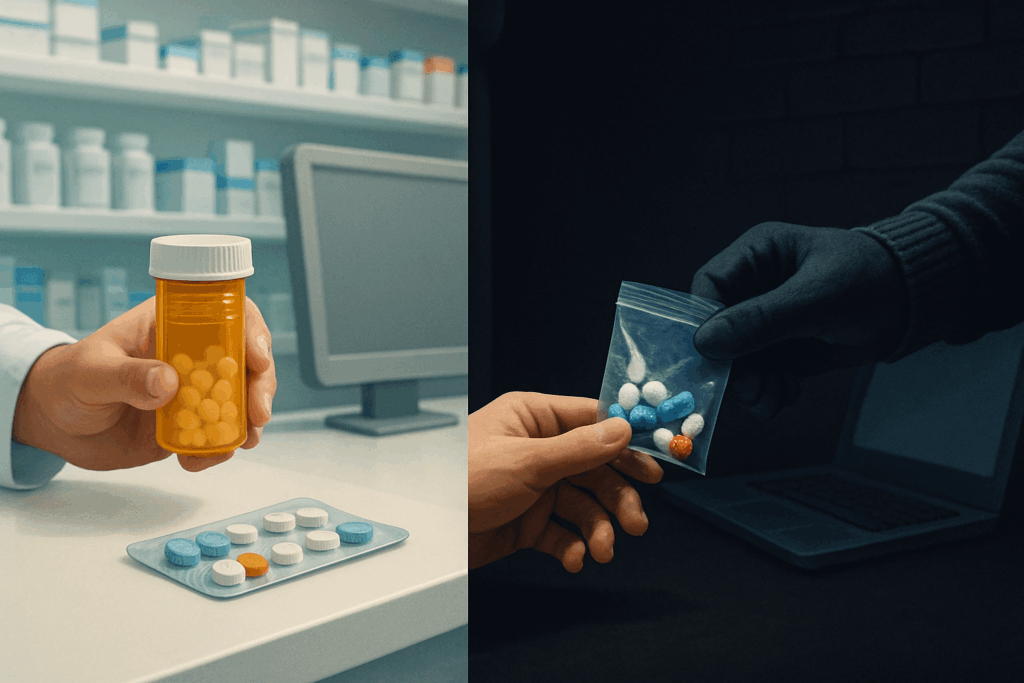
3. Can brain enhancement strategies support creativity as well as memory and focus?
Absolutely—neurological enhancement isn’t limited to boosting memory or attention span. Some nootropics and neuro enhancing techniques, such as mindfulness-based neurofeedback or racetam compounds, are being studied for their potential to unlock divergent thinking and ideation. In particular, enhancing acetylcholine signaling may stimulate associative thinking, crucial for creative breakthroughs. Artists, writers, and designers have begun exploring non-pharmacological brain enhancement tools like transcranial direct current stimulation (tDCS) for ideation. Thus, brain enhancement is evolving beyond traditional academic or corporate performance into the realms of innovation and artistry.
4. What role does gut health play in supporting brain enhancement?
The gut-brain axis is emerging as a key player in the effectiveness of neurological enhancement. Gut microbiota influence the production of neurotransmitters like serotonin and GABA, which are essential for mood regulation and cognitive clarity. If gut health is compromised, even the most potent pharmacological enhancements may underperform due to systemic inflammation or impaired nutrient absorption. Probiotics, prebiotics, and fermented foods support neuro enhancing pathways by optimizing vagal tone and reducing neuroinflammation. For holistic brain enhancement, gut integrity should be treated as a foundational pillar.
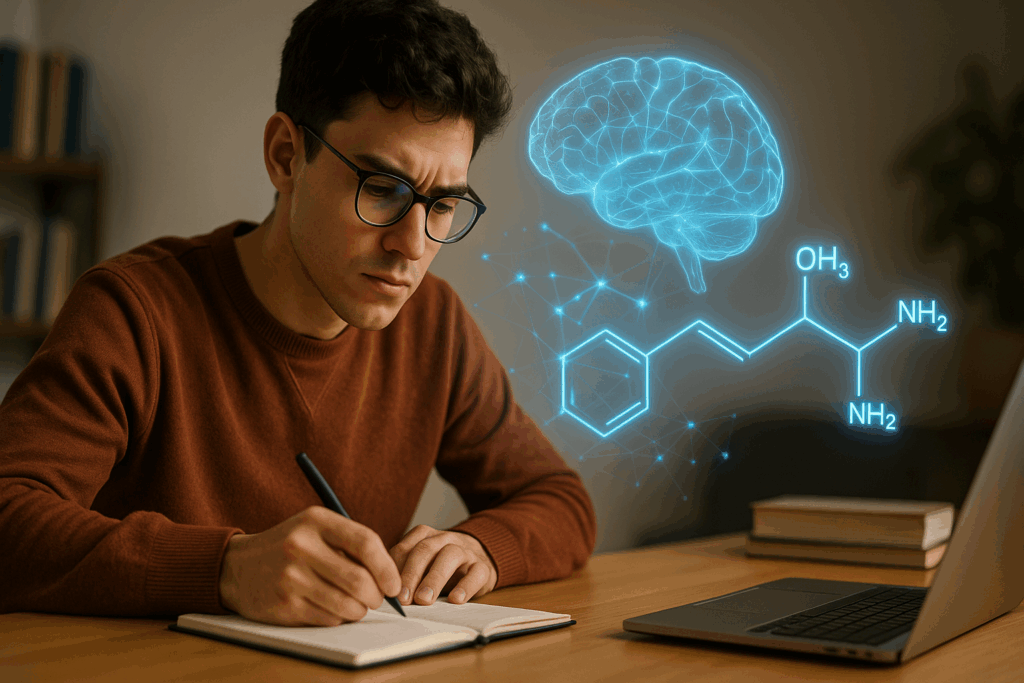
5. How does genetic variability influence individual responses to cognitive enhancers?
Genetic polymorphisms—especially in genes like COMT, DRD2, and BDNF—can significantly influence how someone responds to both natural and pharmacological enhancements. For example, individuals with the Val/Val COMT genotype metabolize dopamine quickly, which may make them less responsive to certain dopaminergic brain enhancement strategies. In contrast, those with Met/Met genotypes might benefit more but also be more susceptible to anxiety. Personalized neurological enhancement is on the rise, with companies now offering pharmacogenetic testing to tailor neuro enhancing interventions. Understanding your genetic blueprint can help optimize outcomes while minimizing side effects.
6. Are there ethical concerns surrounding the use of pharmacological brain enhancement in competitive environments?
Yes, ethical dilemmas abound when neuro enhancing agents are used for competitive gain, particularly in academic or corporate settings. The pressure to outperform can create unequal opportunities for those who choose not to—or cannot—access such enhancements. There’s also a societal risk of normalizing pharmacological enhancements as a prerequisite for success, raising concerns about consent and coercion. Some institutions have begun debating policy frameworks around the ethical use of neurological enhancement in exams or high-stakes decision-making roles. As these technologies evolve, ethical guardrails must keep pace to ensure fairness and autonomy.

7. How does age affect the choice and effectiveness of brain enhancement strategies?
Age dramatically influences how the brain responds to both natural and pharmacological enhancements. Younger individuals may experience heightened neuroplasticity, making them more responsive to lifestyle-based neuro enhancing methods like learning new skills or exercise. Older adults, on the other hand, may require targeted interventions to counter neurodegenerative changes, such as using choline donors or mitochondrial-supporting compounds. Pharmacological enhancements may also need to be dosed differently across age groups to avoid cognitive overstimulation or sleep disruption. A life-stage approach to brain enhancement ensures safer and more tailored cognitive support.
8. Are there non-supplemental tools for neurological enhancement that are gaining traction?
Yes—several high-tech modalities are now complementing or even replacing supplements for some users. Transcranial magnetic stimulation (TMS), neurofeedback, and infrared light therapy are being used to stimulate targeted brain regions non-invasively. These methods show promise in modulating brain wave patterns and improving executive function without the systemic effects of pharmacological enhancements. In fact, some clinical trials suggest that these tools may offer comparable outcomes to traditional neuro enhancing compounds in specific populations, such as those with treatment-resistant depression. This tech-based brain enhancement landscape is becoming increasingly personalized and precise.
9. Can mindfulness and meditation amplify the effects of brain enhancement supplements?
Mindfulness practices can significantly potentiate the effects of neuro enhancing compounds by regulating stress and optimizing prefrontal cortex function. Stress hormones like cortisol can undermine the effectiveness of brain enhancement strategies by impairing memory and attention. Regular meditation helps downregulate the sympathetic nervous system, fostering an environment where neurological enhancement has a stronger, more sustainable impact. For example, pairing L-theanine with mindfulness may enhance alpha wave production, promoting relaxed focus. As such, the integration of inner mental practices with external pharmacological enhancements may offer the most balanced cognitive optimization pathway.
10. What future trends should we expect in the field of neuro enhancing technologies?
The future of neurological enhancement is likely to shift toward hybrid solutions combining AI, wearable tech, and personalized biofeedback. Smart headbands that adjust cognitive stimulation in real-time based on EEG data are already in development. Advances in synthetic biology may soon allow for precision-engineered supplements that adapt to the user’s neurochemical profile on demand. Moreover, ethical AI companions may guide users through safe brain enhancement protocols, dynamically adjusting dosages and regimens. The convergence of neuroscience, technology, and behavioral science promises a new era of individualized, adaptive, and highly effective neuro enhancing systems.
Conclusion: Embracing the Potential and Challenges of Brain Enhancement
The quest for cognitive excellence through brain enhancement and neuro enhancing therapies reflects a fundamental aspect of human nature: the desire to transcend limitations and unlock our full potential. As scientific understanding deepens and technological capabilities expand, the possibilities for neurological enhancement are becoming increasingly tangible. Yet, this journey is fraught with complex challenges, including ethical dilemmas, legal ambiguities, and concerns about long-term safety.
Nootropics, as a key component of brain enhancement pharmacological enhancements, offer significant promise for managing conditions like ADHD and narcolepsy, improving quality of life and functional outcomes for many individuals. However, their broader application among healthy individuals demands careful scrutiny and responsible stewardship. Legal frameworks must evolve to protect consumers without stifling innovation, and ethical considerations must guide policy development to ensure fairness and inclusivity.
Ultimately, the future of brain enhancement lies in a holistic approach that integrates pharmacological, technological, and behavioral strategies. By embracing the complexity of cognitive enhancement and fostering a culture of informed, ethical decision-making, society can harness the transformative potential of neuro enhancing therapies to promote human flourishing while mitigating the risks. As we stand on the cusp of this exciting frontier, a thoughtful and compassionate approach will be essential to realizing the full promise of brain enhancement in the years to come.
Further Reading:
Neuroenhancement: State of the Art and Future Perspectives
Pharmacological Human Enhancement: An Overview of the Looming Bioethical and Regulatory Challenges


